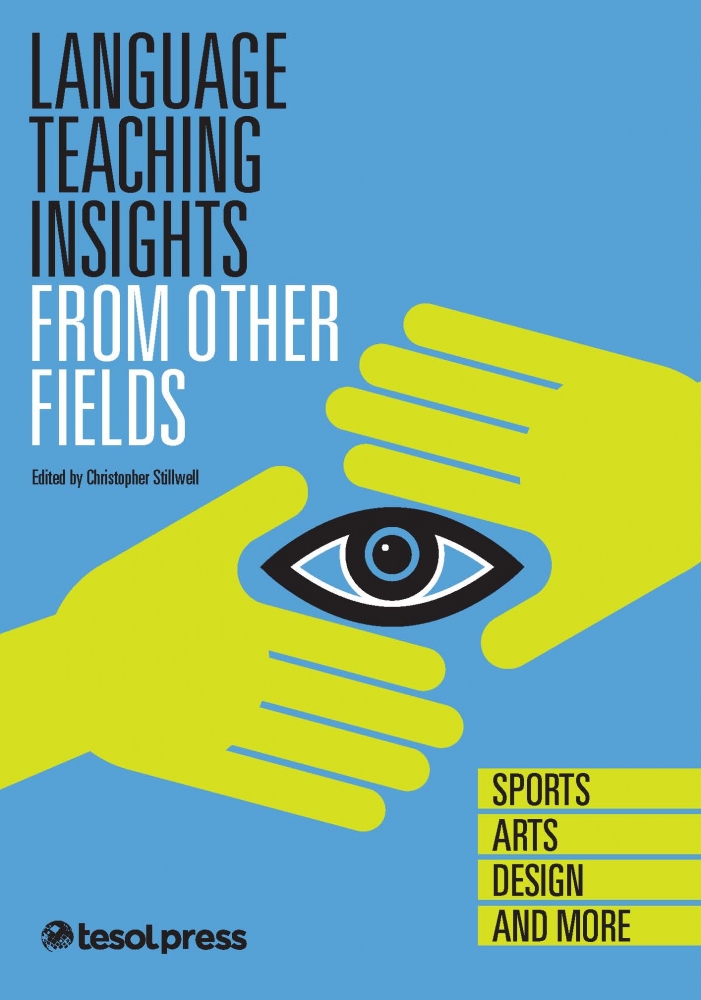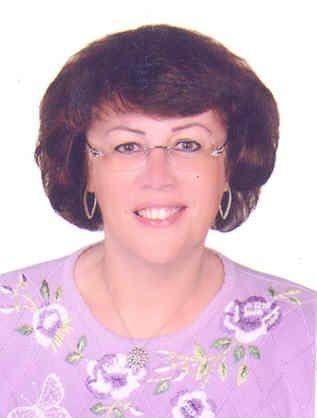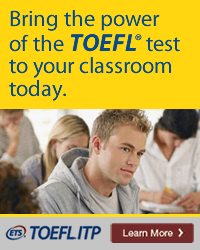TESOL Governance Review: Update
As reported in the March 2013 issue of TESOL Connections, a task force has been appointed by the TESOL International Association Board of Directors to evaluate the current governance of TESOL International Association and—if warranted—propose changes to improve its efficiency and efficacy at meeting the needs of the membership. Following an extensive period of research and study on association governance, the task force provided an initial update to the Board of Directors at their meeting at the 2013 TESOL International Convention and English Language Expo in Dallas, Texas, USA.
Vision and Plan
As a first step, the task force developed a vision for effective governance for the association. This vision draws upon much of the authoritative literature on association governance, and both supplements and aligns with the charge for the task force developed by the Board: TESOL International Association will have a governance system that
-
efficiently and effectively responds to the evolving needs of TESOL members and the profession;
-
supports communities of practice;
-
facilitates collaboration in a professional learning community; and
-
is built on a culture of knowledge, trust, nimbleness, and transparency.
Simultaneously, the task force developed a plan on how the governance review will be executed. The review plan comprises four basic phases, summarized here:
|
Phase |
Process |
Timeline |
|
1 |
Develop Vision, Outcomes, and Performance Indicators |
September 2013–March 2013 |
|
2 |
Conduct Research and Analysis |
April 2013–October 2013 |
|
3 |
Design Recommendations |
November 2013–March 2014 |
|
4 |
Approve and Implement Recommendations |
|
While the task force is responsible for Phases 1–3, the Board of Directors will be responsible for the approval and implementation of the recommendations. (Thus, no specific timeline is yet determined.) Each phase is composed of multiple objectives and action steps, including outreach to leaders and members. A detailed plan is available on the Governance Review update page on the TESOL website.
Leadership Input
At the 2013 TESOL International Convention in March, the task force initiated the research and analysis phase of the plan by providing updates to association leaders on their progress and collecting some preliminary feedback. Specifically, participants at the Leadership Briefing and the Affiliate Assembly were provided an overview of the task force’s work, and then asked to provide their feedback in response to a series of statements relating to governance of the association. The comments covered a wide range of perspectives and voices; some of the feedback is summarized here, categorized according to the areas of governance to which they apply:
-
Clear roles and responsibilities within the association
-
The main purpose of TESOL International Association is to provide professional development, advocacy, and resources for the field. The roles and responsibilities of committees, interest sections, and affiliates in achieving that purpose need to be clearly defined.
-
Roles and responsibilities for leaders within the association should be transparent and continually supported with training and resources across member groups.
-
Clear communication and sharing of knowledge and expertise within the association.
-
Knowledge and information for all members should be facilitated by a number of means and opportunities (online and in person).
-
Communication channels between and among member groups should be easily identifiable and dialogic (i.e., two-way).
-
Making the best use of the association’s resources (time, money, and expertise)
-
Expertise of members should be easily identifiable and visible within the association.
-
Knowledge and information on the association’s resources is not always known, but should be available.
-
Ensuring all member groups within the association have high impact and are enabled to contribute their knowledge and expertise.
-
All member groups are aligned with the association’s mission and strategic plan.
-
Opportunities to contribute knowledge and expertise are transparent.
-
Visibility is important for member groups.
-
Responding to issues of importance to the TESOL profession.
-
Issues have various stakeholders: teachers, learners, and communities. Prioritizing the issues is critical for the association.
-
Member groups have easily identifiable opportunities to contribute and respond to issues.
-
The association collaborates with other like-minded organizations in response to issues, including TESOL affiliates.
-
Nurturing leadership and advocacy within the TESOL profession.
-
Effective leaders should cultivate engagement through substantive work that contributes to the mission and strategic plan of the association.
-
Leaders at all levels require continuous training to ensure effective contributions.
-
Connecting leaders across the association will help in building a strong community.
Using this feedback from leaders, the task force developed a framework for effective governance with a series of outcome statements and performance indicators. This framework will be used to guide the data collection and analysis phase of the review plan.
Next Steps
To continue with the research and analysis phase, additional feedback from leaders will be needed. To facilitate this process, the task force is developing a series of surveys and online focus group discussions for leaders and other stakeholders. These will be conducted through August and September, along with a review of relevant governance documents (e.g., standing rules, reports, and manuals.) A preliminary analysis and findings will be provided to the Board of Directors and the membership in October and November 2013.
Moving forward, the task force will continue its work under the leadership of Denise Murray of Macquarie University. Denise succeeds Brock Brady as chair, who had to step down due to obligations with his work at the Peace Corps. Additional information from the task force is available on the TESOL website.
TC Monthly Giveaway Congratulations to Karen Green, of Austin, Texas, USA, for being the winner of the July 2013 TESOL Connections Monthly Giveaway. Karen won a free speaking book set.
This month, TESOL is giving away two free copies of our latest book:
Language Teaching Insights
From Other Fields:
Sports, Arts, Design, and More

One copy for you, and one for a friend or colleague!
Click here to enter
Drawing closes 29 August 2013, 11:59 pm EST
TESOL Blogs Interested in writing a blog for TESOL?
Contact Tomiko Breland with your idea or for details.
Check out the latest TESOL Blogs:
|
The Right Placement for ESL Writers, by Elena Shvidko
 In today’s entry, I would like to address the issue of the placement of international students in college composition classes. As we all know, institutions of higher education in the United States host a large number of international students drawn from a wide range of countries. This number is increasing each year. “Today universities are among the most diverse organizations in the world” (Harrison, 2012, p. 224). Along with the benefits that foreign learners obtain from pursuing their education in U.S. colleges, they also encounter challenges of linguistic, educational, financial, social, cultural, and psychological origins. Read More. In today’s entry, I would like to address the issue of the placement of international students in college composition classes. As we all know, institutions of higher education in the United States host a large number of international students drawn from a wide range of countries. This number is increasing each year. “Today universities are among the most diverse organizations in the world” (Harrison, 2012, p. 224). Along with the benefits that foreign learners obtain from pursuing their education in U.S. colleges, they also encounter challenges of linguistic, educational, financial, social, cultural, and psychological origins. Read More.
|
|
Bridging the Gap Between Research and Classroom Practice, by Deena Boraie, TESOL President
 In an interesting article in the Guardian Weekly of October 16, 2012 (“How Useful is TESOL Academic Research?“), Penny Ur asks an important question about TESOL academic research for classroom teachers. She acknowledges the gap between classroom practice and research, stating that the source of professional learning for most teachers is from their classroom experience and interaction with students as well as discussions with their colleagues. Teachers are busy people and have little time to read research. She notes that a lot of the research focuses on language acquisition and rarely deals with pedagogical issues such as effectiveness of different types of exercises or classroom management. Read More. In an interesting article in the Guardian Weekly of October 16, 2012 (“How Useful is TESOL Academic Research?“), Penny Ur asks an important question about TESOL academic research for classroom teachers. She acknowledges the gap between classroom practice and research, stating that the source of professional learning for most teachers is from their classroom experience and interaction with students as well as discussions with their colleagues. Teachers are busy people and have little time to read research. She notes that a lot of the research focuses on language acquisition and rarely deals with pedagogical issues such as effectiveness of different types of exercises or classroom management. Read More.
|
|
Google+ Education: Part 2, by Tara Arntsen
 Back when I talked about participatory cultures in a post entitled Moving Education Online, I mentioned Google Sites as a resource for teachers. Google Sites is great because you can easily make a class website using the template called Classroom site. While building a website from scratch is intimidating for many, creating a website from this Google Sites template is not hard as there are directions for customizing the various sections. Some sections included in the template are homework assignments, contact me, class announcements, reading list, class photos, and word of the week. If you don’t need a section, just delete it! It’s that simple. Read More. Back when I talked about participatory cultures in a post entitled Moving Education Online, I mentioned Google Sites as a resource for teachers. Google Sites is great because you can easily make a class website using the template called Classroom site. While building a website from scratch is intimidating for many, creating a website from this Google Sites template is not hard as there are directions for customizing the various sections. Some sections included in the template are homework assignments, contact me, class announcements, reading list, class photos, and word of the week. If you don’t need a section, just delete it! It’s that simple. Read More.
|
TESOL Bookstore 
 Treat Yourself to a Book Full of Surprises! Treat Yourself to a Book Full of Surprises!
Language Teaching Insights
From Other Fields:
Sports, Arts, Design, and More
This book is a fun read and full of practical tips from language teachers who bring their insights to the classroom from extensive experience in other fields.
How would a restaurant reviewer critique an essay? How would a martial arts master facilitate language practice? How would a bartender create a supportive environment for learning? And how would a social activist promote critical thinking in the classroom? Answers to these questions and more translate into new ways of thinking about teaching and the classroom.
"The authors provide much, much more than the “insights” promised in the title. Each chapter is fascinating, inspiring, refreshing, and intellectually stimulating. I would select it for an ESOL methods course. Buy this book!" (John F. Fanselow, Professor Emeritus, Columbia University Teachers College)
|
 |
|
|
 |
| Visiting Lecturer of Linguistics and English, Ohio University, Athens, Ohio, USA
EFL Teachers (Immediate Hire), Edwin Consulting, Riyadh, Saudi Arabia
Fellowships Available Worldwide, English Language Fellow Program, Worldwide
CEA Junior Accreditation Associate, Commission on English Language Program Accreditation (CEA), Alexandria, Virginia, USA
English (ESL) & Math Teachers, World Jobs, Inc, Saudi Arabia
Want to post your open positions to Job Link? Click here.
To browse all of TESOL's job postings, check out the TESOL Career Center. |
 |
|
 |
| ADVERTISEMENT |

|
 |
|